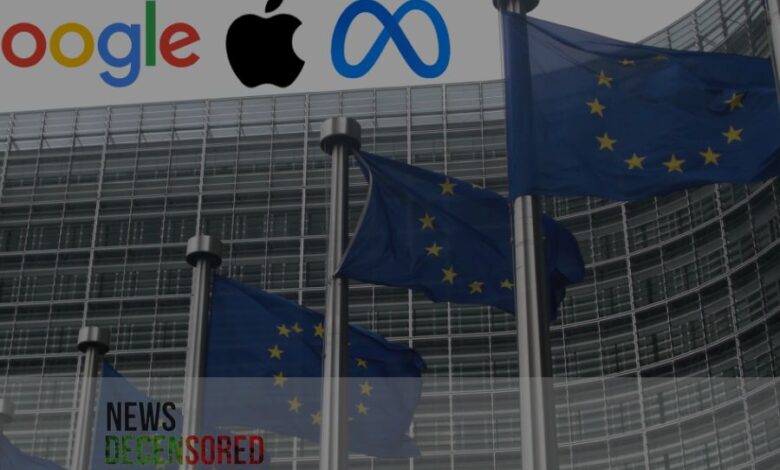EU’s New Investigations Pose Threat of ‘Heavy’ Fines for Apple, Google, and Meta

The European Union has launched a series of investigations into the competitive practices of some of the world’s biggest tech companies, including Meta (formerly Facebook), Apple, and Alphabet (parent company of Google). These investigations stem from concerns that the tech giants may be violating the newly implemented Digital Markets Act (DMA), which aims to promote fair competition in the digital sphere.
The potential consequences for the tech firms are significant. If found to be in breach of the DMA, they could face hefty fines amounting to up to 10% of their annual global revenue. This move by the EU comes just weeks after Apple was hit with a €1.8 billion fine for anti-competitive practices related to music streaming services, and amidst a similar lawsuit filed by the United States against Apple regarding its dominance in the smartphone market.
The EU’s antitrust chief, Margrethe Vestager, and industry head, Thierry Breton, jointly announced the investigations, highlighting the swift action being taken to address potential breaches of the DMA. Notably, all three companies under investigation are headquartered outside of Europe (five in the US and one in China), but their immense global reach necessitates scrutiny under EU regulations.
While these companies meticulously prepared compliance reports for the DMA, just two weeks after submitting them, they now face the prospect of EU probes. This development underscores the EU’s determination to enforce the DMA and ensure a level playing field in the digital market.
Apple has responded by expressing its intention to cooperate with the investigation and asserting confidence in its compliance with the DMA. They emphasize the efforts made to establish mechanisms that adhere to the DMA’s regulations while prioritizing privacy and security for EU users. Additionally, they point to their willingness to incorporate feedback from the European Commission and developers throughout the process.
Meta, on the other hand, has defended its use of subscriptions as an alternative to advertising, stating it’s a well-established business practice across various industries. They maintain that their “Subscription for No Ads” model was designed to address multiple regulatory requirements, including the DMA, and reiterate their commitment to constructive engagement with the Commission. As of now, Alphabet has not yet issued a public statement regarding the investigations.
The specific areas of investigation outlined by the EU encompass five potential violations of the DMA:
- Restricted User Communication: The EU suspects that Apple and Alphabet may be hindering apps from freely communicating with users and establishing direct contracts with them.
- Limited User Choice: The investigation into Apple delves into whether the company is restricting user choice by making it difficult to uninstall apps, change default settings, or utilize alternative browsers and search engines.
- “Pay or Consent” Model: The EU is examining Meta’s practice of requiring users to pay to avoid having their data used for targeted advertising, evaluating its fairness.
- Search Engine Bias: Google is under scrutiny for potentially prioritizing its own products and services within its search results, raising concerns about impartiality.
- “Anti-Steering” Practices: The first two investigations focus on this concept, where the EU believes Apple and Alphabet may be making it challenging for apps to inform users about alternative payment methods outside of their app stores, potentially inflating costs for consumers.
The EU emphasizes that these investigations prioritize consumer protection, addressing issues directly relevant to billions of users worldwide who rely on these companies’ products and services. Thierry Breton, from the EU, highlights the urgency of these actions, stating, “We’re talking about the protection of our citizens, we can’t just sit around and wait.”
Beyond immediate concerns, the timing of these investigations coincides with the upcoming European Parliament elections in June 2024. Dr. Rupprecht Podszun, a competition law expert, views this move as a strong signal from the EU. He emphasizes the DMA’s design for swift enforcement and the central role these investigations play in addressing the core business models of the tech giants. He anticipates tense legal battles but acknowledges the ultimate authority of the Court of Justice in determining the outcome.




